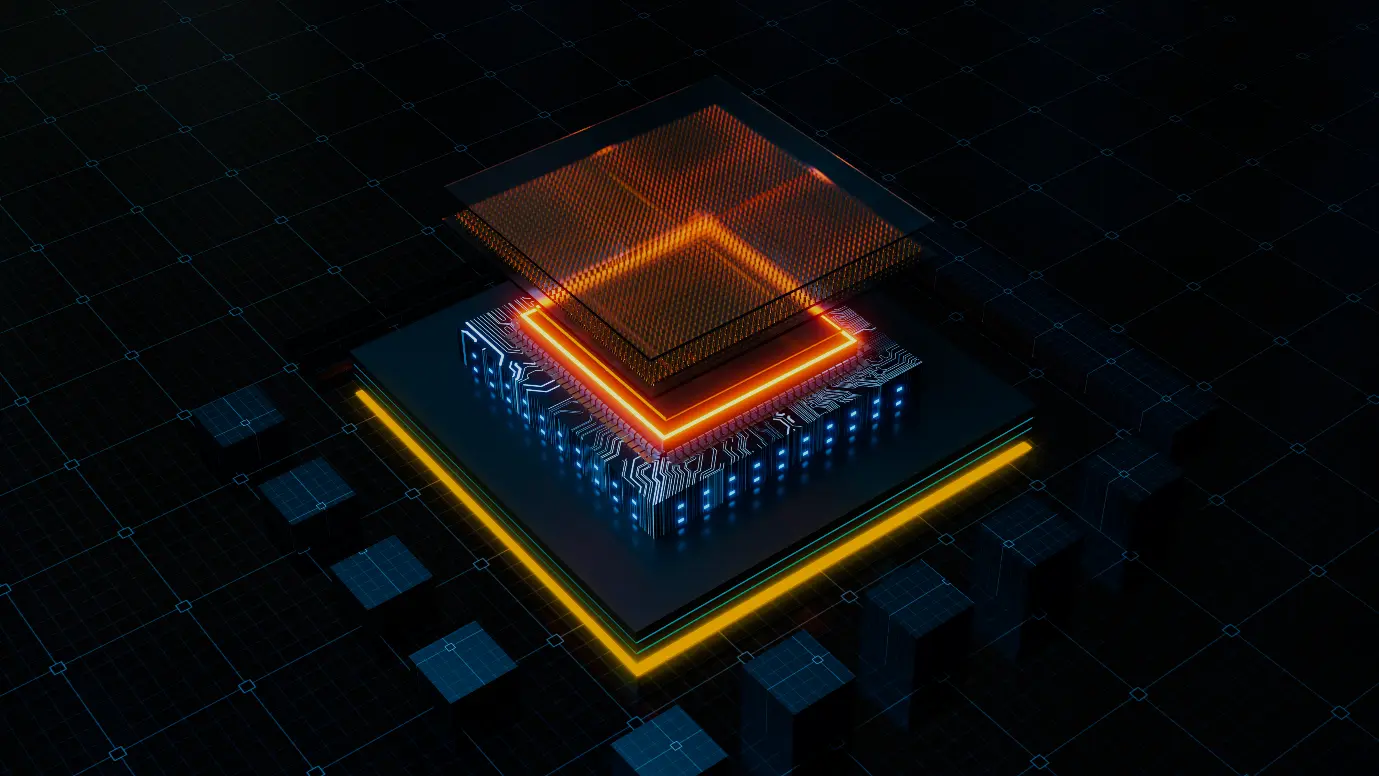Breakthrough in AI Chip Technology: China Unveils World's First Super All-Analog Photoelectronic Chip

Artificial Intelligence (AI) chips are designed to accelerate and optimize AI and Machine Learning (ML) workloads. The field of AI involves tasks such as pattern recognition, data analysis, and decision-making, which often require massive parallel processing. AI chips perform various tasks like deep learning, neural network processing, and other computationally intensive operations. These chips are tailored to support the parallel computing needs of AI workloads, making them well-suited for these tasks.
AI chips come in various types, including Graphics Processing Units (GPUs), Field-Programmable Gate Arrays (FPGAs), Application-Specific Integrated Circuits (ASICs), Central Processing Units (CPUs), and others. They find applications in diverse fields such as natural language processing (NLP), computer vision, network security, and robotics, spanning industries like automotive, healthcare, retail, IT and telecom, media, advertising, BFSI, and more. AI chips incorporate various technologies such as System-on-Chip (SoC), System-In-Package (SIP), and Multi-Chip Modules, among others. They are utilized in both Edge and Cloud processing environments.
In China, researchers at Tsinghua University have developed the world's first super all-analog photoelectric chip capable of processing computer vision tasks with remarkable speed and energy efficiency. The All-analog Chip Combining Electronic and Light Computing (ACCEL) exceeds Nvidia's A100 GPU by 3.7 times in computer vision tasks. ACCEL utilizes a specialized architecture that combines photonic and analog computing, enabling it to generate high-resolution images of various daily life scenes over 3,000 times faster and with 4,000,000 times less energy consumption than a top-of-the-line graphics processing unit (GPU).
Unleashing the Power of AI: Driving Forces Behind the Boom in AI Chip Sales
According to a recent study by IMARC, the global AI chip market is expected to reach US$ 89.6 Billion by 2029. The demand for AI chips has increased substantially over time. Various factors contributing to the market's growth are outlined below:
Rapid Growth in AI Technology: AI chips are designed to handle the unique processing requirements of machine learning and deep learning algorithms. The increasing adoption of AI across various industries, including healthcare, finance, automotive, and manufacturing, is driving the demand for specialized AI hardware.

Rising Demand for AI Chips in Consumer Electronics: The demand for AI is surging rapidly in consumer electronics such as laptops, desktops, and gaming consoles because it offers a wide range of benefits, such as voice recognition, image processing, and real-time decision-making. These chips enable faster and more efficient processing of AI algorithms on devices, improving user experiences by enabling capabilities like facial recognition, language translation, and personalized recommendations.

Innovation in AI Chip: The competition among market players has spurred the innovation of new AI chips, with companies investing heavily in research and development to create chips with improved performance, capabilities, and cost-effectiveness. Furthermore, many industry players are heavily investing in neuromorphic research initiatives to develop technologies inspired by the functioning of real neurons in the brain. Additionally, they are incorporating AI and (ML) to develop the upcoming generation of AI chips, thereby playing a crucial role in market growth.

Increasing Demand for Cloud Computing: The demand for cloud computing is surging at a higher pace as large-scale AI applications often rely on cloud computing infrastructure, where AI chips contribute to accelerating AI workloads. The increasing demand for cloud-based AI services and infrastructure has led to the widespread use of AI chips in data centers.

Moreover, the rapid growth of workloads, performance improvement, and the growing demand for AI in IoT are other factors that contribute to the rise in demand for AI chips in the market.
From Lab to Market: The Latest Trends in AI Chip Development
- In August 2023, Nvidia introduced an upgraded configuration of its AI chip, the Grace Hopper Superchip, specifically designed to enhance the performance of generative AI applications. This latest version boasts increased high-bandwidth memory, providing the design with the capability to support larger AI models. The configuration is meticulously optimized for efficient AI inference functions, making it a powerhouse for generative AI applications such as ChatGPT.
- Sapeon also joined the race by launching new AI chips tailored for data centers. The Sapeon X330 chip promises approximately double the computational performance and 1.3 times better power efficiency compared to its competitors. Geared to support large language models (LLMs), crucial for AI applications like ChatGPT, this product is scheduled for mass production in the first half of the upcoming year.
- Microsoft has introduced a pair of custom AI chips, namely Azure Maia 100 and Azure Cobalt 100 CPU, designed to accelerate in-house AI computing tasks. The Maia 100 chip is specifically engineered for running large language models and facilitating AI model training. On the other hand, Cobalt, a custom Arm-based CPU, is strategically designed to handle general computing workloads.
- NXP Semiconductors introduced the i.MX 95 family in January 2023, the latest addition to its i.MX 9 series of application processors. This new family integrates high-performance computing, immersive Arm MaliTM-powered 3D graphics, an innovative NXP accelerator for machine learning, and high-speed data processing. Collectively, this technology facilitates advanced applications in automotive, industrial, networking, connectivity, advanced human-machine interface (HMI), and various other sectors.
Investing in the Future: Exploring the Market Dynamics of AI Chip Development
The growth of the AI chip market is significantly influenced by the initiatives, investments, and strategic partnerships of governments, both in the public and private sectors globally. Funding for research and development, along with supportive policies, plays a crucial role in advancing AI chip technologies.
A recent noteworthy example is the collaboration between Reliance Industries and the U.S.-based chipmaker NVIDIA, aimed at advancing artificial intelligence in India. This partnership not only contributes to India's ambitions in AI and semiconductor chip development but also plays a pivotal role in establishing an indigenous foundation. This foundation includes the creation of large language models trained on the diverse languages of the nation, specifically tailored for generative AI applications.
Additionally, the global adoption of advanced technologies like computer vision, big data, augmented reality (AR), and virtual reality (VR) across various industries is expected to drive market growth in the forecasted period. Moreover, the increasing utilization of quantum computing technologies for addressing complex problems and conducting analytical computations further anticipates sustained market growth in the coming years.
Unlocking Potential: Elevate Your Understanding with IMARC's Insightful Analysis
Companies need to set goals for the development of new and innovative AI Chips. It is necessary for them to analyze their existing products and identify areas where technological advancements can be introduced in the manufacturing of AI Chips for a better user experience. The analysis of competitors’ business strategies and innovation of products is again a very important parameter for developing unique and featured AI Chips.
At IMARC Group, we specialize in assisting companies through market research to identify the latest trends, business strategies, and product opportunities. We assist organizations in the AI chips market in finding their target audience, their preferences, and purchasing behavior and creating powerful marketing plans. We can assist by providing information on new product launches, innovations, and recent trends and developments. We help businesses position themselves for long-term success and growth.
Our Clients
Contact Us
Have a question or need assistance?
Please complete the form with your inquiry or reach out to us at
Phone Number
+91-120-433-0800+1-201-971-6302
+44-753-714-6104










